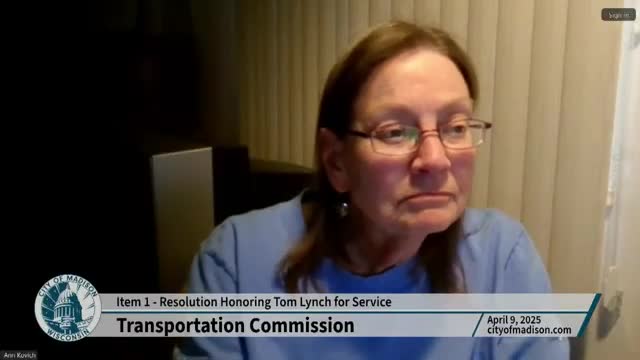Article not found
This article is no longer available. But don't worry—we've gathered other articles that discuss the same topic.
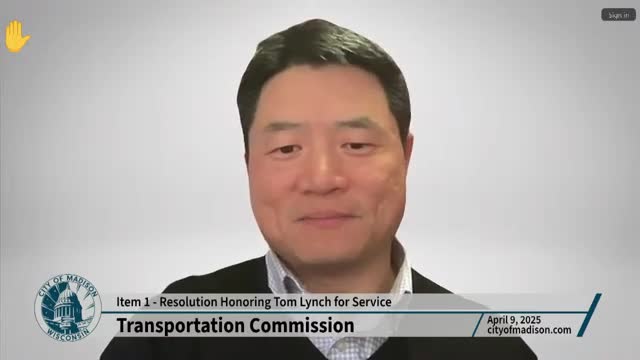
City and consultants present federally funded South High Point Road extension; commission prefers center two‑way left turn lane and single‑lane roundabout
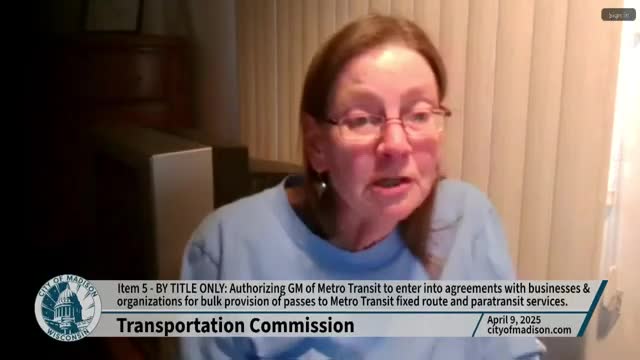
Commission refers Metro pass authorization and exclusion‑policy clean‑up to April 23 for details
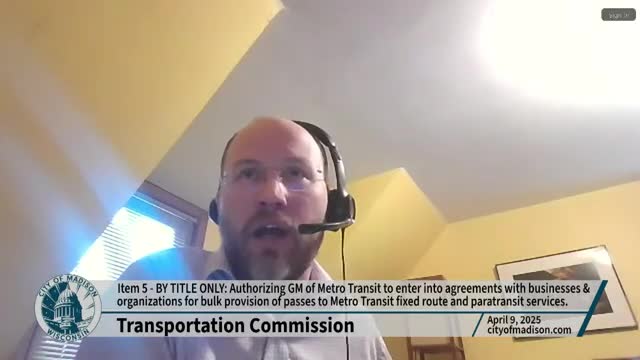
Commission approves D2 route extension to Verona; stop details deferred to next meeting
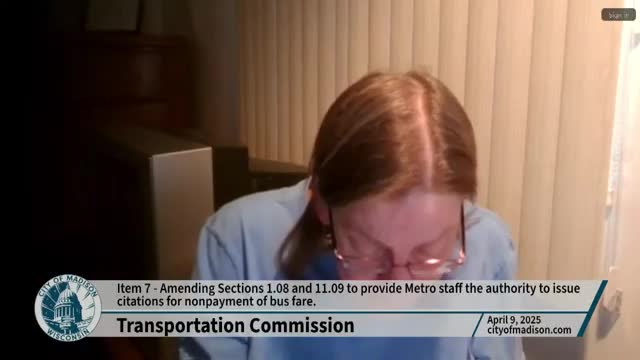
Commission backs ordinance enabling Metro staff to issue citations for fare nonpayment, lowers minimum forfeiture to $5
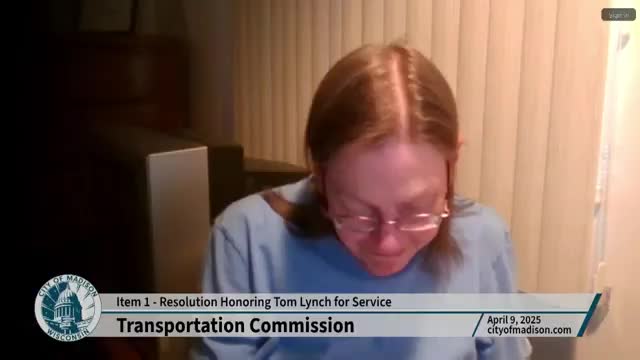
Transportation Commission adopts resolution commending Tom Lynch on retirement
